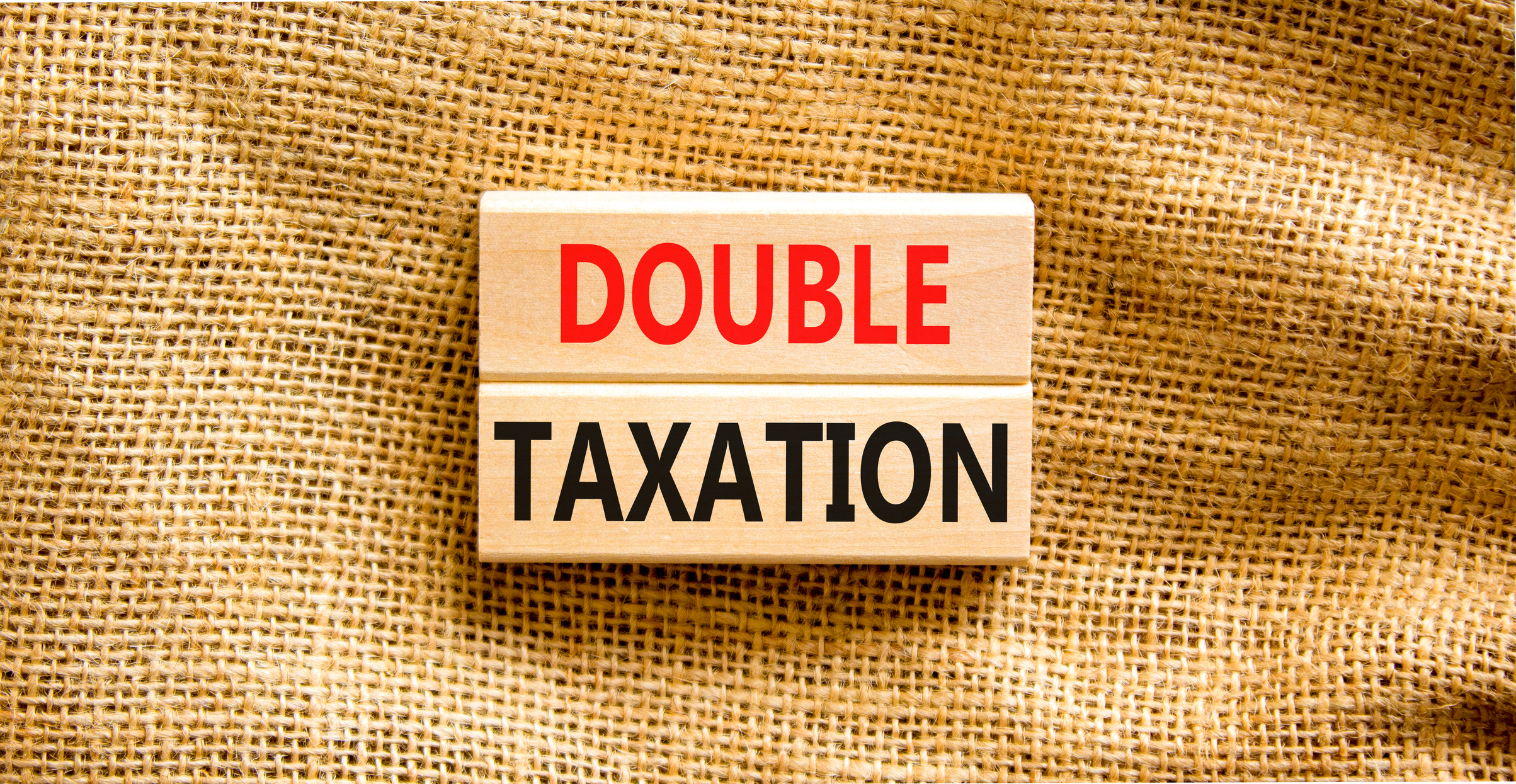When to Hire a Tax Pro: The Age Most Americans Switch to a CPA
Taxpayers may outsource their financial stress by a specific age. Find out when you should hire a tax preparer.


Profit and prosper with the best of Kiplinger's advice on investing, taxes, retirement, personal finance and much more. Delivered daily. Enter your email in the box and click Sign Me Up.
You are now subscribed
Your newsletter sign-up was successful
Want to add more newsletters?

Delivered daily
Kiplinger Today
Profit and prosper with the best of Kiplinger's advice on investing, taxes, retirement, personal finance and much more delivered daily. Smart money moves start here.

Sent five days a week
Kiplinger A Step Ahead
Get practical help to make better financial decisions in your everyday life, from spending to savings on top deals.

Delivered daily
Kiplinger Closing Bell
Get today's biggest financial and investing headlines delivered to your inbox every day the U.S. stock market is open.

Sent twice a week
Kiplinger Adviser Intel
Financial pros across the country share best practices and fresh tactics to preserve and grow your wealth.

Delivered weekly
Kiplinger Tax Tips
Trim your federal and state tax bills with practical tax-planning and tax-cutting strategies.

Sent twice a week
Kiplinger Retirement Tips
Your twice-a-week guide to planning and enjoying a financially secure and richly rewarding retirement

Sent bimonthly.
Kiplinger Adviser Angle
Insights for advisers, wealth managers and other financial professionals.

Sent twice a week
Kiplinger Investing Weekly
Your twice-a-week roundup of promising stocks, funds, companies and industries you should consider, ones you should avoid, and why.

Sent weekly for six weeks
Kiplinger Invest for Retirement
Your step-by-step six-part series on how to invest for retirement, from devising a successful strategy to exactly which investments to choose.
Paying taxes may be the last thing on your mind as you head into a busy season of turkey, stuffing, and televised football. You may even feel tempted to hand over your income return to a professional before tax season begins. And according to a new survey, that’s not a surprise.
Market research company, Talker Research, recently found that, at a certain stage in life, more than a third of taxpayers are “happy to just let professionals handle their taxes for them,” citing that finances may get “too complicated the more you age.”*
Age aside, there are several circumstances when professional tax assistance could be beneficial, like when you’re trying to navigate complex rules surrounding foreign-earned income or cryptocurrency investments. Yet there are situations where you may not benefit from hiring a tax preparer. Here’s more of what to know.
From just $107.88 $24.99 for Kiplinger Personal Finance
Become a smarter, better informed investor. Subscribe from just $107.88 $24.99, plus get up to 4 Special Issues

Sign up for Kiplinger’s Free Newsletters
Profit and prosper with the best of expert advice on investing, taxes, retirement, personal finance and more - straight to your e-mail.
Profit and prosper with the best of expert advice - straight to your e-mail.
*The Talker Research survey was commissioned by TaxSlayer Pro, conducted online, and surveyed 2,000 U.S. taxpayers.
When to hire a tax professional for filing taxes
The Talker survey found that the “average American” turns to professional tax help by age 29 for a variety of reasons:
- Investments. About 23% turn to professionals before 30 because they’ve begun investing.
- Bandwidth. Almost one-quarter of respondents say they don’t have the time to handle their own taxes.
- Life events. At least 20% of “younger” taxpayers look for a tax professional after getting married, and 15% opt for a tax preparer after buying a home.
“For many Americans, big life milestones like getting married or buying a home can make filing taxes start to feel overwhelming,” said Richard Marshall, Director of Sales at TaxSlayer Pro, in the survey’s press release. Research shows the average marriage age for men is around 30, and for women, 28. “...another motivator for people — especially this year — is when tax laws change.”
True, the big Trump/GOP tax and spending bill, also known as the “big beautiful bill,” made significant changes to tax provisions in 2025. Among other things, eligible taxpayers can now take an interest loan deduction for some cars, potentially claim a higher deduction for state and local taxes, and deduct tips and overtime pay on their federal income returns.
But do concerns about missed opportunities justify hiring a tax professional? Well, that depends on whether you have a complicated tax situation, regardless of age.
Are tax preparers worth the cost?
A tax preparer can be valuable when your financial situation is “complex.” Here are a couple of scenarios where attempting to manage your taxes without professional help could be complicated:
- If you have several sources of income. Over 25% of Americans surveyed by Talker had multiple sources of income (this may include gig work, rental income, etc.). Several revenue streams can complicate the tax filing process, as different tax rules may apply to each additional source.
- If you own a business. Almost half of self-employed taxpayers surveyed said they have consulted with tax preparers about how to manage business taxes. Business tax laws can present significant compliance issues or unique record-keeping challenges compared to individual income tax returns.
Tax compliance is a key issue when your income tax return is complicated. The North Carolina Association of CPAs found that an average IRS “mail” audit led to $6,000 in additional taxes for taxpayers. And in-person IRS audits averaged a whopping $21,000 to $22,000 in unexpected taxes.
Hiring a tax professional may help you avoid the risk of an IRS audit, thereby possibly saving you money. The cost of outsourcing your taxes fluctuates based on the number of hours your tax preparer spends and/or how many tax forms you need filed. The typical fee for a tax preparer, like a CPA, can range from $200 to over $2,500 for one income return.
However, you should steer clear of a “one size fits all” approach. As reported by Kiplinger, less than 1% of all individual tax returns have been audited in recent years, so not everyone is at risk of a costly mistake. You may opt for software to file your taxes instead if your tax situation is simple. For instance, some taxpayers use IRS Free File each year, while millions were eligible for Direct File last year.
Choosing between a CPA and DIY tax software
At least 60% of taxpayers surveyed by Talker said they still file their own taxes — so if you’re one of them, you're not alone. You may be able to skip the professional and do your own tax filing if you fall into at least two of the following categories:
- Claim the standard deduction. IRS data show that about 90% of taxpayers choose the standard deduction over itemizing. This means you wouldn’t use your itemized receipts for medical expenses, charitable contributions, etc., for income tax purposes.
- Only have one or two W-2s. Even if you’ve changed jobs in the last year, you may not need a professional’s help. (But residing in two or more states might make your tax reporting more difficult.)
- You don’t have a business, rental properties, or tricky investment income. Significant or complex investments may warrant a tax professional’s help (e.g., cryptocurrency investing or investments that require you to pay net investment income tax).
If you meet none or only one of these criteria, you may wish to consult a qualified tax preparer, like a CPA. But in reality, your comfort level with taxes and the complexity of your situation dictates whether you need a tax professional.
Also, tax situations change. Reevaluate every year whether you would like a professional’s help. After all, more than half of do-it-yourself taxpayers from the Talker survey admitted they’d use a tax preparer if their situation got more complicated in the future. Although there’s no perfect “age” to hand over your taxes to a professional preparer, there’s certainly a perfect time to start tax planning: Now.
Read More
- Types of Income the IRS Doesn't Tax
- 2025 Tax Brackets and Federal Income Tax Rates
- Tax Breaks for Middle-Class Families Claiming the Standard Deduction
Profit and prosper with the best of Kiplinger's advice on investing, taxes, retirement, personal finance and much more. Delivered daily. Enter your email in the box and click Sign Me Up.

Kate is a CPA with experience in audit and technology. As a Tax Writer at Kiplinger, Kate believes that tax and finance news should meet people where they are today, across cultural, educational, and disciplinary backgrounds.
-
 Quiz: Do You Know How to Avoid the "Medigap Trap?"
Quiz: Do You Know How to Avoid the "Medigap Trap?"Quiz Test your basic knowledge of the "Medigap Trap" in our quick quiz.
-
 5 Top Tax-Efficient Mutual Funds for Smarter Investing
5 Top Tax-Efficient Mutual Funds for Smarter InvestingMutual funds are many things, but "tax-friendly" usually isn't one of them. These are the exceptions.
-
 AI Sparks Existential Crisis for Software Stocks
AI Sparks Existential Crisis for Software StocksThe Kiplinger Letter Fears that SaaS subscription software could be rendered obsolete by artificial intelligence make investors jittery.
-
 How to Open Your Kid's $1,000 Trump Account
How to Open Your Kid's $1,000 Trump AccountTax Breaks Filing income taxes in 2026? You won't want to miss Form 4547 to claim a $1,000 Trump Account for your child.
-
 In Arkansas and Illinois, Groceries Just Got Cheaper, But Not By Much
In Arkansas and Illinois, Groceries Just Got Cheaper, But Not By MuchFood Prices Arkansas and Illinois are the most recent states to repeal sales tax on groceries. Will it really help shoppers with their food bills?
-
 7 Bad Tax Habits to Kick Right Now
7 Bad Tax Habits to Kick Right NowTax Tips Ditch these seven common habits to sidestep IRS red flags for a smoother, faster 2026 income tax filing.
-
 New Plan Could End Surprise Taxes on Social Security 'Back Pay'
New Plan Could End Surprise Taxes on Social Security 'Back Pay'Social Security Taxes on Social Security benefits are stirring debate again, as recent changes could affect how some retirees file their returns this tax season.
-
 Living in One State, Working in Another: How to Avoid a Tax Season Headache
Living in One State, Working in Another: How to Avoid a Tax Season HeadacheState Tax Living and working in two states can take a heavy toll on your paycheck and give you a headache come tax time. Here's what to know.
-
 10 Cheapest Places to Live in Colorado
10 Cheapest Places to Live in ColoradoProperty Tax Looking for a cozy cabin near the slopes? These Colorado counties combine reasonable house prices with the state's lowest property tax bills.
-
 New Gambling Tax Rule Impacts Super Bowl 2026 Bets
New Gambling Tax Rule Impacts Super Bowl 2026 BetsTaxable Income When Super Bowl LX hype fades, some fans may be surprised to learn that sports betting tax rules have shifted.
-
 Should You Do Your Own Taxes This Year or Hire a Pro?
Should You Do Your Own Taxes This Year or Hire a Pro?Taxes Doing your own taxes isn’t easy, and hiring a tax pro isn’t cheap. Here’s a guide to help you figure out whether to tackle the job on your own or hire a professional.